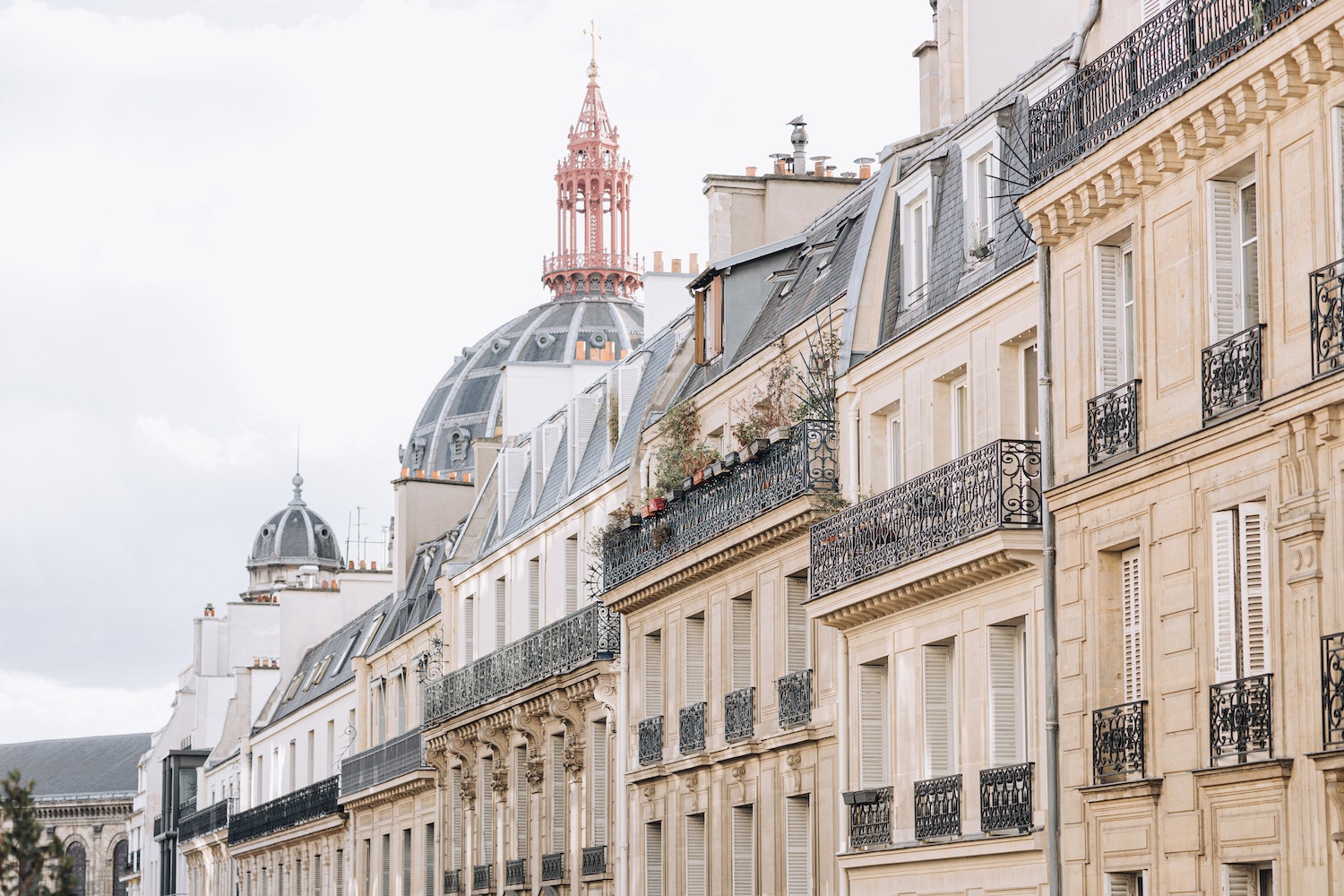Are some buyers getting a discount for poor insulation in Paris? A new report says they are – something we know will interest readers of the 56Paris blog.
While we’ve known about this phenomenon for some time, an official notary investigation now reveals the amount of savings property buyers are making.
We take a look at why – and how – this is happening.
Older properties can be ‘thermal sieves’
Think Paris real estate and you think of charming interiors, grand elegant buildings with stone facades and iron balconies.
These Hausmannian buildings date from the late 1800s, and other period constructions even a century or two earlier. So while they are beautiful historical properties, they’re not always the most energy efficient.
They’re often called thermal sieves. This refers to the heat escaping from the roof and walls, making them not just energy inefficient, but more expensive to run too.
And some savvy buyers are using this as leverage, securing a discount for poor insulation in Paris when purchasing their apartments.
Sure, it’ll mean more work to fix the issues, adding insulation and improving all-round energy efficiency. But it’s something more and more buyers are doing – and a new report proves it.
Diagnostics – DDT and DPE, A to G
So how can you tell if a property has poor insulation, or is energy intensive in other ways?
The answer is the Dossier de Diagnostic Technique (Technical Diagnostic File) or DDT. This is the property survey generally referred to as ‘Diagnostics.’
If you’re buying an apartment in Paris, this report gives an overview of the property’s health, safety and environmental impact. It also flags poor insulation, in the section known as the Diagnostic for Energy Performance (DPE).
All sellers and landlords are responsible for arranging these tests before listing their apartment for sale or rental, which rates the energy efficiency from A to G. It’s something we talked about in an earlier blog.
According to a new green report from the Notaries of France, just 2% of Paris properties can boast an A or B rating – not surprising with a city filled with mostly period properties.
7% of Paris apartments are now rated C, 28% D, and 34% E.
The lowest ratings of F and G are now held by the remaining 29% of properties in Paris.
So there is clearly still a long way to go.
Paris, the historical city getting greener
As Paris aims to become greener, the government is gradually bringing in restrictions on the sale and rental of thermal sieves – forcing owners to renovate them to modern energy standards.
And if owners don’t have the budget or desire to renovate, they can sell now, and let the new buyer do the renovation work – but with a discount for their trouble.
For landlords who rent their properties, time is fast running out to address the issues. The process began in 2021 with France’s Climate and Stability Law, which outlined the gradual steps.
From 2025 onwards, apartments rated G – the least efficient – are completely banned from rental.
Then in 2028, those rated F are also banned. By 2034, those with an E rating will be banned as well.
And rents are currently frozen for G and F properties.
This is why more of these apartments are selling now, and for lower prices too.
How much of a discount for poor insulation in Paris?
Recently published, a report from the Notaries of France examines the green value of property, looking at all sales in 2022.
It covers property transactions across the country. But looking at Paris on its own, some interesting figures emerge…
In the second quarter of 2021, properties rated F and G made up just 12% of all sales. By the same quarter in 2023, these transactions accounted for 32% of property sales. An increase of 20% in two years.
And while we don’t have full data for 2023 yet, we can see that last year, poorly insulated apartments rated F and G accounted for 29% of all transactions in Paris.
So it’s clear, the thermal sieve deadlines are changing the market dynamic.
But how much of a discount are we talking about?
According to the green report, the discount for properties classified F and G ranges from -4% to -11% on average.
For an apartment on the market for €800,000, for example, that’s a potential savings of up to €88,000.
One thing to note, however. In areas such as Paris, where property prices are higher, future renovation costs make up a smaller percentage of the total price. This makes the price-saving percentage lower too, averaging about 6% in the capital.
So the savings when buying in Paris are likely to be more conservative than in other areas of France.
The bottom line
The bottom line is this: if you’re a buyer willing to do renovation work to improve insulation, now is the time to seriously consider making a purchase.
If you want to talk to our real estate experts, please do get in touch.
We have many years of experience helping buyers find and purchase their dream apartment in Paris, and can certainly help you too with the latest tips and advice.
You can also follow our social media pages on Facebook, X, Instagram, and Pinterest.
